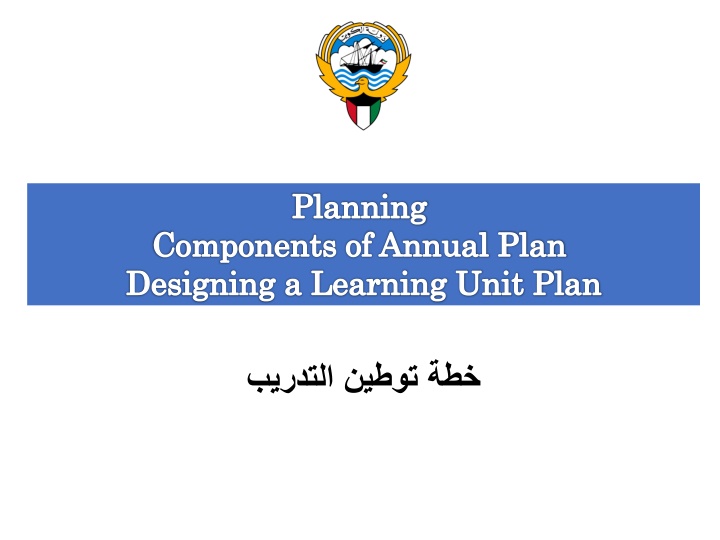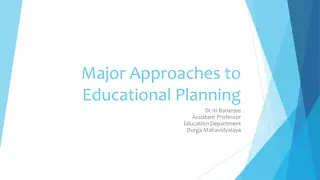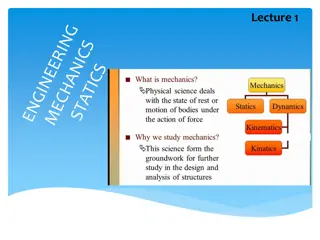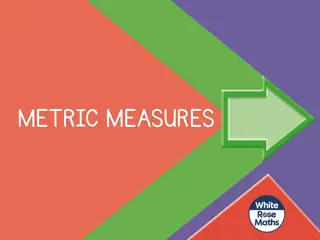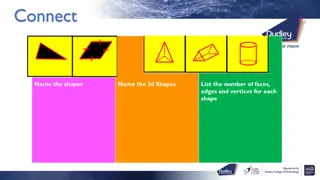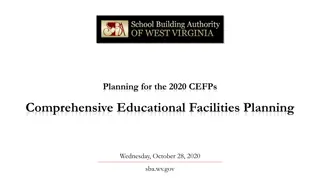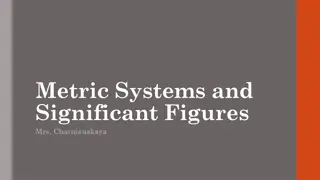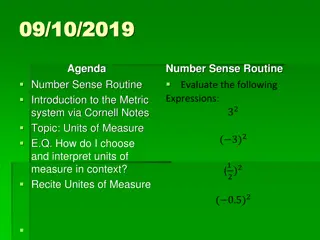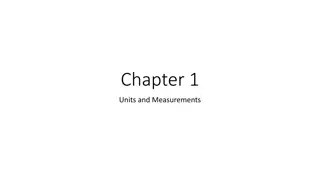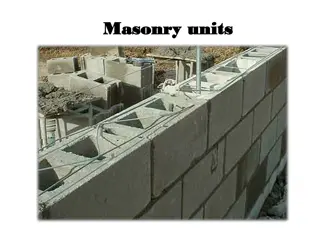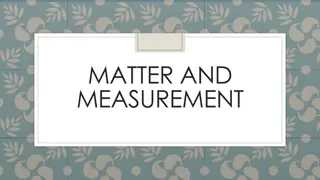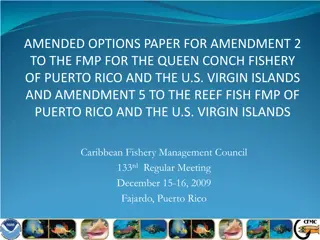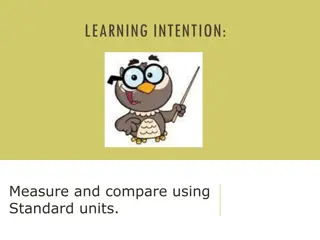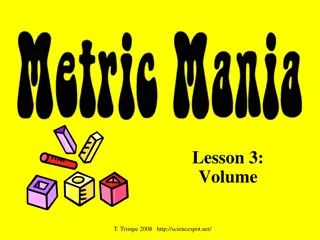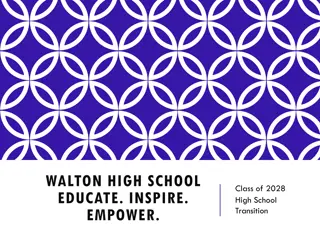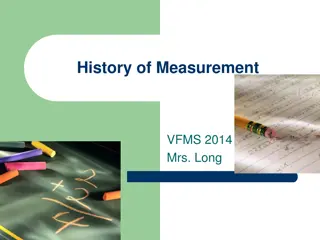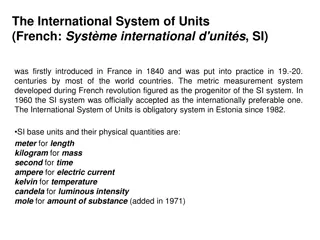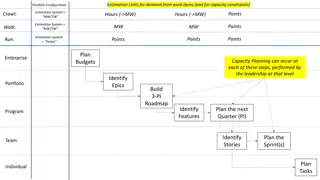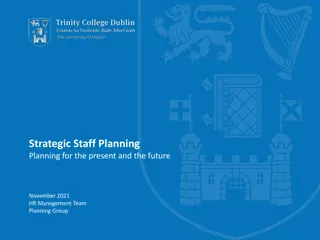Effective Planning Strategies for Successful Educational Units
Explore the key components of annual plan design, learning unit planning, and lesson plans. Understand the importance of planning, stages of planning, and overcoming challenges faced by teachers in creating effective lesson plans. Benefit from insightful quotes by Benjamin Franklin and Peter Drucker emphasizing the significance of preparation and foresight in achieving goals.
Download Presentation

Please find below an Image/Link to download the presentation.
The content on the website is provided AS IS for your information and personal use only. It may not be sold, licensed, or shared on other websites without obtaining consent from the author.If you encounter any issues during the download, it is possible that the publisher has removed the file from their server.
You are allowed to download the files provided on this website for personal or commercial use, subject to the condition that they are used lawfully. All files are the property of their respective owners.
The content on the website is provided AS IS for your information and personal use only. It may not be sold, licensed, or shared on other websites without obtaining consent from the author.
E N D
Presentation Transcript
Planning Components of Annual Plan Designing a Learning Unit Plan
http://thumb1.shutterstock.com/display_pic_with_logo/2551714/315822794/stock-vector--d-realistic-summer-vacation-design-for-travel-in-a-sand-beach-island-in-horizon-with-summer-items-315822794.jpghttp://thumb1.shutterstock.com/display_pic_with_logo/2551714/315822794/stock-vector--d-realistic-summer-vacation-design-for-travel-in-a-sand-beach-island-in-horizon-with-summer-items-315822794.jpg Ice breaking time. Design a poster about your plan of the summer vacation you are going to have.
Outcomes: Define Planning Identify the different stages of planning Discuss the components of the competence-based Annual Plan Discuss the components of the learning units Discuss the lesson plan Discussing different types of thinking Plan a lesson based on a vision of the learning unit Discuss the difficulties teachers face in writing lesson plans and the suggested solutions
If you fail to plan, you are planning to fail. Quote by Benjamin Franklin
It wasnt raining when Noah (PBUH) built the ark
The relevant question is not simply what shall we do tomorrow, but rather what shall we do today to get ready for tomorrow? Peter Drucker
Planning The process of setting goals, developing strategies, and outlining tasks and schedules to accomplish the goals.
Task What are the stages of planning? (Group discussion)
Planning Process: Establish objectives Develop Strategies Determination of premises Reviewing the planning process Determination of alternatives Implantation of Evaluation of alternatives plans Formulation of derivative plans Selecting a course of action
Why do teachers need planning? What To Why whom How
Important questions for discussion: Which are the points of reference in planning? How can teachers create planning documents?
What plans do we attach to our work? What plans do we attach to our work?
Annual Planning Annual Planning http://previews.123rf.com/images/kerdazz/kerdazz1312/kerdazz131200009/24198406-Simply-designed-calendar-for-year-2017-Stock-Vector.jpg
The importance of annual planning The importance of annual planning A macro level planning estimate Provides a possible structure for the year long journey Aligns with the curriculum purpose Establishes a possible map Allocates time for all learning units
Points of reference for the annual planning structure of the school year calendar other textbook or workbook curriculum instructional materials
What to be taken into consideration We make sure we cover all the SC s and learning content for a school year. We take into consideration the time assigned to the subject for a certain grade. We determine a coherent perspective on the journey proposed for students. We may use the textbook as ONE OF THE resources rather than a unique point of reference for the plan and in teaching and learning.
The Annual Plan The English Language Subject
The Unit Plan The Unit Plan
An open and flexible learning structure, focusing on the management of the teaching and learning which: Leads to developing specific learning outcomes Has a common topic (and, in some cases, combines learning content from different domains of the subject or other subjects) Progresses meaningfully and with continuity over a period of time Includes formative assessment and ends with a summative test
Planning the learning units With what? How much? What? How? Why? Set Select learning content Undertake learning activities Focus on specific competences /meet standards Analyze resources formative/ summative assessment
How to plan the learning units Determine the specific competences to be acquired Identify the adequate learning activities. Select learning activities that are adequate to the needs of the group and having in view the SC Suggest formative/summative assessment strategies (select those that fit the group s progress) having in view the CS (curriculum standards) as the intended target.
How to plan your lessons according to competency How to plan your lessons according to competency based approach based approach When using the updated lesson plan teachers should consider the following points:
Planning a lesson based on a vision of a LU What information do I have from the LU? What student experiences will I develop? What student experiences are expected? Important learning activities The learning evidence students are expected to produce Type of activity (individual, group etc.)
Planning a lesson based on a vision of a LU Should I add something to the corresponding sequence in the planned LU? How will I begin and end the lesson in order to ensure a coherent link with previous and next lessons in the LU and to motivate the students for learning? How can I begin the lesson? (links with what students already know about the topic, arouse their interest for the topic)
Planning a lesson based on a vision of a LU Can I do all the learning activities planned for this sequence be included? What do I select? What do I add? Can I use all the assessment instruments mentioned in the planning? What do I select? What do I add? How can I end the lesson in order to make the learning meaningful for my students? (reflection on how they explored the topic and on how they can use the new acquisitions in different contexts)
Challenges in Lesson Planning Difficulties in writing (copying) the competences and standards everyday Repeating the same competences almost everyday Little focus on the writing competences
Challenges in Lesson Planning Choosing suitable activities to match the specific competences Competences are very general and vague for the teachers Critical thinking activities are still a burden The wrong usage of assessment tools
What criteria should you have to design a task? Will the activity engage learners' interest? Is there a primary focus on meaning? Is there a goal or an outcome? Is success judged in terms of outcome? Is completion a priority? Does the activity relate to real world activities?'
task Choose an activity from the pupil s book and write a lesson plan.
Thinking Time Thinking Time
Blooms taxonomy of the cognitive domain EVALUATION SYNTHESIS High order thinking skills ANALYSIS APPLICATION COMPREHENSION Low order thinking skills KNOWLEDGE
Logical thinking A process in which one uses reasoning consistently to come to a conclusion The ability to understand and to incorporate the rules of basic logical inference in everyday activities Cause and effect
Logical thinking examples 1. A doctor diagnosing a patient s illness 2. An engineer trying to determine why a machine is not working 3. You have six pairs of black socks and six pairs of white socks in a drawer. In complete darkness, and without looking, what is the least number of socks must you take from the drawer in order to be sure you get a matching pair? 4. A milkman has two empty jugs: a three gallon jug and a five gallon jug. How can he measure exactly one gallon of milk without wasting any?
Critical thinking Critical thinking is thinking which involves evaluation and, perhaps, challenge.
Critical thinking activities Critical thinking activities
Critical thinking activities Critical thinking activities
Critical thinking activities Critical thinking activities 1. Who Works Where? Klare, Lemon, Morton, and Nelson are women who love their work (dress designer, florist, gardener, and symphony conductor). From the clues below, match up each woman s name with her kind of work. 1. Klare is violently allergic to most plants. 2. Lemon and the florist are roommates. 3. Lemon likes only rock music. 4. The gardener, the dress designer, and Nelson are strangers. Chart for Problem 1
